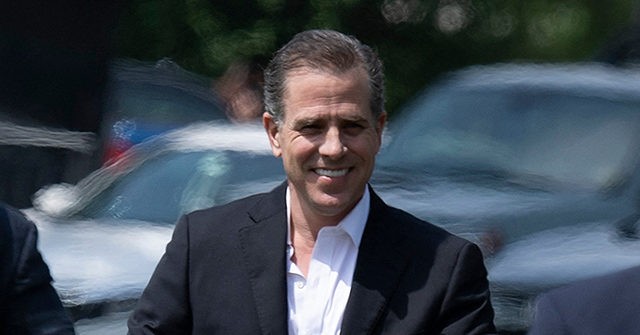

On Friday’s broadcast of CNN’s “The Source,” Hunter Biden attorney Abbe Lowell stated that David Weiss has no more power as a special counsel than he did before and noted that both Attorney General Merrick Garland and Weiss himself “have said for weeks, months, that he had all the authority he needed to bring any charge that was merited, at any time that was appropriate, in any place that made sense. … So, from a practical point of view, nothing really changed.”
Lowell said, “[W]hat happened today, as a practical matter, is not much different than what was the case yesterday or three weeks from before. The Attorney General and Mr. Weiss both have said for weeks, months, that he had all the authority he needed to bring any charge that was merited, at any time that was appropriate, in any place that made sense. And so, the power that a special counsel has is the power that he has had. So, from a practical point of view, nothing really changed. His title may change.”
He added, “First, his title became special counsel today. His powers were the same yesterday. So, what’s different? It doesn’t make any difference to us, given what we understood to be the case. Once again, people need to understand that the Attorney General and…Mr. Weiss have said for a long time that he had all the authority that he needed to bring any charge that was appropriate in any place. So, what does a special counsel do that he couldn’t do? The answer should be nothing different.”
Lowell further stated, “I am confident that if the prosecuting office follows the facts and the law, as they were prepared to say they’d done when they came to court on July the 26th, that there should be no different conclusion than what they already came [to].”
Later, Lowell added that the failure to reach plea bargain showed there was “a disagreement” over what the plea deal meant. He continued, “So, let me ask you and anybody who’s paying attention the following question: What group of experienced attorneys would have their client plead guilty on Monday to a misdemeanor, believing that the prosecutors could bring a felony on Wednesday? So, as to what interpretation of the agreement made the most sense, I turn that question to you to answer it. So, there [are] only a few possible answers to the dilemma. Either there was a garbled communication between the sides, possible. It could be that somehow the prosecutors thought they were making a statement that they turned out either not to be accurate about or not to be specific about. Or it could be, as you saw in court, that they seemed to be changing their position as the proceedings went along.”
Follow Ian Hanchett on Twitter @IanHanchett







